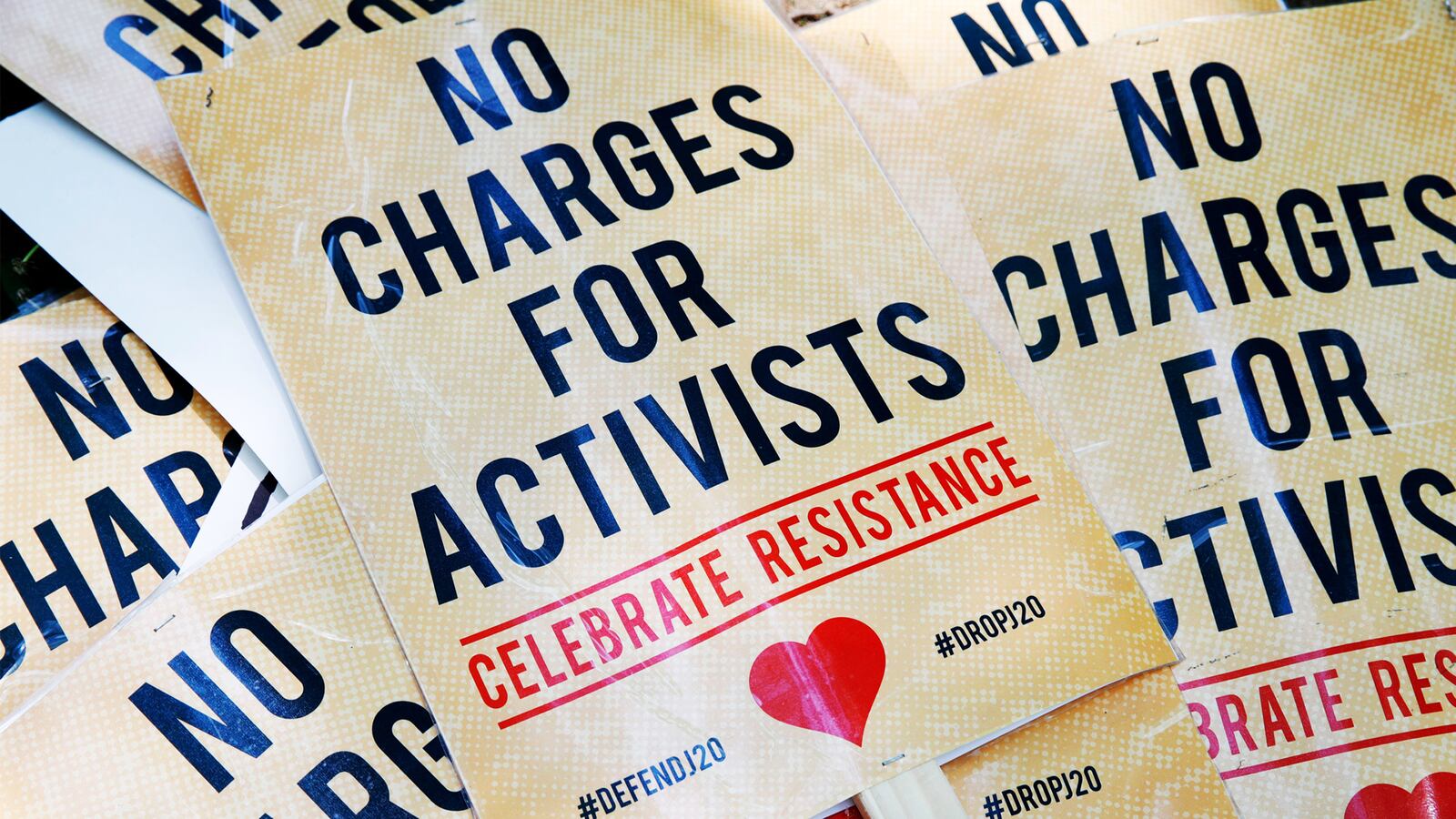Prosecutors dropped the cases against six activists accused of rioting outside President Donald Trump’s inauguration, after those prosecutors admitted to breaking court rules by hiding from defendants dozens of videos from right-wing video outlet Project Veritas.
The defendants were among approximately 200 people charged with conspiracy riot after sweeping mass-arrests at protests in Washington, D.C. on January 20, 2017. Prosecutors made their case for conspiracy based in part on videos from Project Veritas, which filmed some activists discussing their plans for an Inauguration Day protest. But U.S. attorneys edited a video to appear more damaging to defendants, then passed the video off as undoctored, prosecutors admitted last week. And in a Wednesday email to a judge, prosecutors admitted to hiding another 69 recordings, which they had been required to disclose.
On Thursday, prosecutors moved to dismiss all charges against six defendants currently being tried for a series of charges including conspiracy to riot. A judge also dismissed the conspiracy charge for defendants in an upcoming trial, undercutting the most serious element of those cases. If convicted on all charges, the defendants faced decades in prison.
The government’s conspiracy case was already weak. A superseding indictment against the initial group of approximately 200 defendants accused them of conspiracy based on evidence as thin as the defendants wearing black or walking in groups that chanted anti-capitalist slogans. The defendants have been tried in groups, and the first group of defendants were found not guilty on all charges. After the acquittals, prosecutors dropped the cases against more than 100 defendants, but continued to press charges against 59 people.
Those remaining charges relied heavily on the Project Veritas videos, which, as defense attorneys first noted last week, had been secretly edited after Project Veritas gave the footage to the government. According to a court provision called the Brady rule, prosecutors must disclose potentially exculpatory evidence in their possession. A judge threatened sanctions against the prosecutors for hiding the doctored footage, but let the case proceed.
But with scrutiny mounting, prosecutors admitted in a Wednesday email that they had withheld 69 other Project Veritas recordings (66 videos and three audio files, ThinkProgress reported), in violation of the Brady rule. The prosecutors moved to drop six of the ongoing cases that relied on evidence from the Project Veritas footage, calling the controversy “a distraction from the conduct of the defendants,” the media collective Unicorn Riot reported.
Judge Robert Morin slammed prosecutors for implying to him that they only had one Project Veritas video.
“Can you explain your office’s representations to this court that there was only one video provided to Detective Pemberton by Project Veritas?” Morin asked on Thursday.
“I can’t speak to that at this moment,” Assistant U.S. Attorney Ahmed Basset replied.
The six dismissed cases include that of Dylan Petrohilos, a defendant who says he was not even in attendance at the protest, and was arrested later during a raid on his home. On Twitter, Petrohilos highlighted that more than 50 cases still remain open.
Among those are the cases against four defendants, who are currently being tried, albeit in a different court room from Petrohilos and his co-defendants. Prosecutors have played the Project Veritas footage for jurors in that case.






